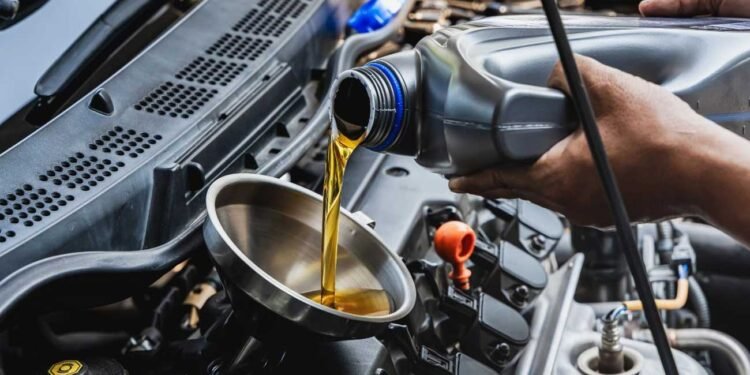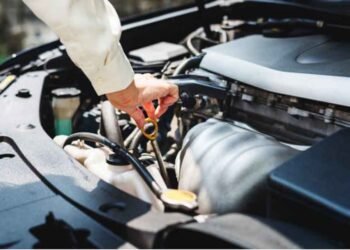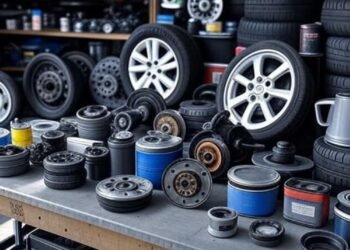Maintaining your vehicle regularly may seem time-consuming, but consistent care pays off through significant cost savings, safer driving, and fewer unexpected issues. When you take small steps to maintain your car, you avoid the stress and financial strain of large repairs or breakdowns. Routine upkeep doesn’t just protect your ride—it can also make a real difference in your long-term expenses, safety, and peace of mind. To get tips, checklists, and expert guidance, learn more.
Understanding the comprehensive benefits of regular maintenance is crucial for any driver. Whether you use your vehicle daily or only for occasional errands, preventive care can help you avoid emergencies and keep costs under control. Trusting a reliable source for information and professional tips will ensure your car remains in top shape for years to come. Regular maintenance routines, if followed, not only guarantee savings but also a safe and worry-free driving experience.
Prolonging Your Vehicle’s Lifespan
Think of your car as a loyal companion; the better you care for it, the longer it serves you. Oil changes, tire rotations, and brake inspections are essential tasks that are crucial for maintaining vehicle longevity. Timely oil changes help keep your engine lubricated and at the optimal operating temperature, thereby reducing friction and preventing overheating issues that could lead to major repairs. Rotating tires equally distributes wear, improving each tire’s lifespan and maintaining optimal handling. Regularly following your car’s maintenance schedule, as outlined in your vehicle’s manual, helps prevent unnecessary early wear and mechanical breakdowns.
Enhancing Safety on the Road
Your well-being and the safety of your passengers depend on the condition of your vehicle. Maintenance ensures that essentials like brakes, tires, and lights remain in top working order. Ignoring regular inspections can increase stopping distances, increase the risk of blowouts, and reduce nighttime visibility. Adjusting your headlights, checking tire pressure monthly, and ensuring brake pads have ample life can make a significant difference in accident prevention. By identifying and correcting these concerns early, you make every journey safer for everyone on the road.
A detailed history of maintenance also builds trust if your vehicle’s ever involved in a collision or traffic incident, providing evidence that you took proper precautions and care.
Improving Fuel Efficiency
Many drivers search for ways to save at the pump—simple maintenance is the answer. Clean engine oil helps parts move more smoothly and reduces unnecessary fuel consumption. Ensuring proper tire pressure not only prolongs tire life but also reduces rolling resistance, meaning your engine doesn’t have to work harder than necessary. Replacing clogged air filters improves airflow and ensures efficient fuel combustion, saving you money each mile. Even a quick look under your hood before a big drive can prevent high fuel bills and keep your car running at peak efficiency.
Preventing Costly Repairs
One of the top advantages of consistent maintenance is catching minor issues before they escalate into catastrophic problems. A small coolant leak or low brake fluid level is an easy fix if detected early, but if ignored, these issues can damage your engine or brake system—resulting in repair bills that run into thousands. Routine inspections help spot unusual wear, odd noises, or leaking fluids, sparing you the financial pain and hassle of an unexpected breakdown. According to the Car and Driver maintenance guide, addressing problems promptly can result in significantly lower lifetime repair costs. By staying proactive, you not only extend your vehicle’s lifespan but also ensure greater safety on the road. Over time, this habit of preventative care adds up to substantial savings and a more reliable driving experience.
Maintaining Resale Value
If you ever plan to sell or trade in your vehicle, a well-documented maintenance history can set your car apart. Buyers and dealerships offer higher values for vehicles with routine service records because this signals reliability and fewer hidden issues. Investing in regular checks not only preserves performance but also maintains the equity in your asset. Having maintenance receipts and a stamped service logbook helps build sale price and buyer confidence—often paying back far more than the upfront cost of service appointments.
Reducing Environmental Impact
Responsible maintenance isn’t only about your wallet—it’s about the planet. A well-tuned engine, a replaced air filter, and an efficient exhaust system all help reduce emissions and keep your vehicle running cleaner. Vehicles in poor condition can leak fluids or burn fuel inefficiently, leading to higher pollution rates. Making routine checks part of your habits minimizes these impacts, safeguarding air quality and reducing your carbon footprint.
Driving Smarter for the Long Haul
Caring for your vehicle isn’t just about avoiding breakdowns—it’s about building a smarter, safer, and more cost-effective driving routine. When maintenance becomes a regular part of your lifestyle, you’re not only extending the life of your car but also enhancing its performance, protecting the environment, and preserving its value for future resale or trade-in. Small, consistent efforts today can prevent major expenses and hassles tomorrow.
By committing to regular upkeep, you’re taking control of your driving experience in a meaningful way. Whether it’s ensuring your safety, saving on fuel, or reducing your vehicle’s environmental impact, each action adds up. So stay informed, follow your car’s maintenance schedule, and invest in the tools and knowledge that will keep you—and your car—running smoothly for years to come.












